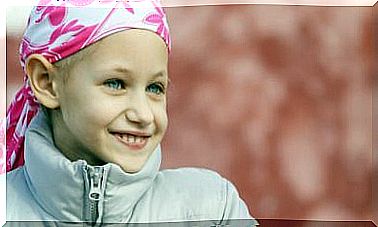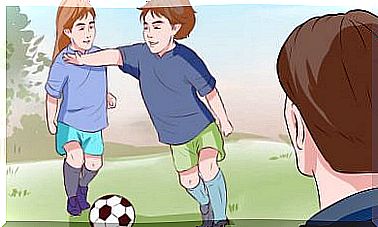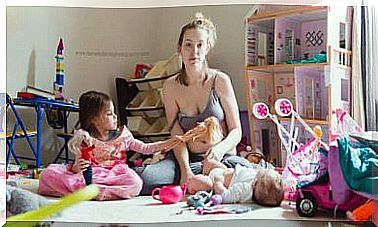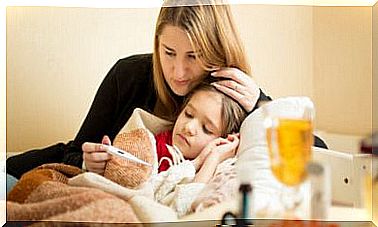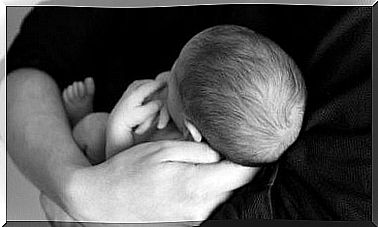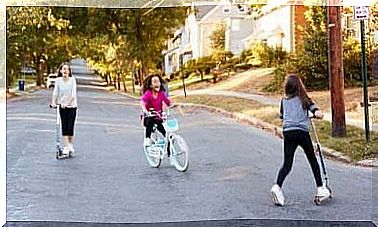Torticollis In Babies
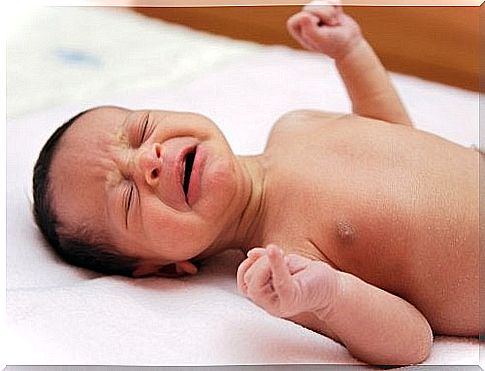
A torticollis is usually a painful condition that you may have gone through at some point in your life. Especially at night it can lead to a “stiff neck” if you fall asleep with the wrong posture. Babies can also suffer from torticollis.
A common reason is a problematic birth or incorrect positioning in the uterus. This condition can also be known as congenital muscular torticollis or infant torticollis.
Most babies with torticollis are not in pain. However, the head is usually tilted to one side and the child may have difficulty turning his neck.
Fortunately, this will improve over time with simple exercises and / or changes in position.
What can we do about a torticollis in babies ? First we need to understand what exactly this state means.
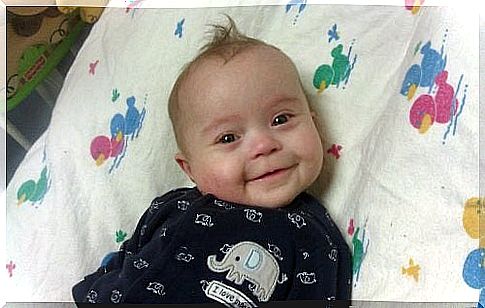
What is a torticollis?
A torticollis, or torticollis, is a condition in which a baby or child has their head and chin tilted to one side. This inclination is a relieving posture as the child would feel pain if they moved their head to a normal position.
However, the baby cannot fully bring his head into a normal position. If the child is born with this disease, it is called “congenital torticollis”.
There are studies that have shown that around 1 in 250 babies will have this condition from birth.
In some cases, an acquired torticollis with a twisted head may occur later after birth. The baby with torticollis appears to be in pain, but not necessarily.
If there is pain, it is because of improper head and neck posture. If you find that your baby’s head is tilted to one side, whether or not they are in pain, your best bet is to see your pediatrician. He will be able to judge the condition.
Torticollis in babies: symptoms
A torticollis in babies is suspected when the baby has trouble tilting or moving his head. You even notice it when you hold your baby in your arms.
To know if it is really torticollis, you should pay attention to the following symptoms, which are very clear in these cases:
- Your head is tilted in one direction.
- They look over one shoulder instead of turning their head completely to respond to a particular movement.
- The baby prefers to breastfeed on one breast as it can be problematic on the other.
- He has difficulty moving his head completely in one direction and becomes dissatisfied when that doesn’t work.
In addition to these symptoms , there are other diseases that can develop from torticollis. It is important to know what it is in order to be able to distinguish them.
The next step is to go to the pediatrician as soon as possible to assess the clinical picture:
- Positional plagiocephaly (flat head syndrome). This can occur on one or both sides of the head.
- Development of a small lump or swelling in the neck, similar to a lump in tight muscles.

Possible causes of torticollis in babies
There are several different triggers that can cause torticollis in babies. We need to know how this happens in order to find the most appropriate treatment in each case.
Although it is not a common condition in infants, it can still occur. Because of this , parents should be aware of possible causes.
Narrowing of the sternum muscle
A congenital torticollis usually develops when the muscle that connects the sternum and collarbone to the skull (sternocleidomastoid muscle) narrows and tightens.
This stress may be due to unusual positioning in the uterus (head tilted in one direction). Another possibility is that the muscle may have been damaged during labor. This condition is known as “congenital muscle torticollis”.
Cervical spine abnormalities
Anomalies in the formation of the cervical vertebrae are less common. They can be the cause of congenital torticollis, a condition known as “Klippel-Feil Syndrome”.
In this case, the neck bones may be fused together, abnormally shaped, or a combination of both. All of these could lead to a torticollis.
Hereditary diseases
A congenital torticollis can in rare cases be caused due to serious illnesses.
These disorders can cause damage to the nervous system or muscles, the brain, or a tumor on the spinal cord. This is also hereditary and can therefore also occur in babies.
